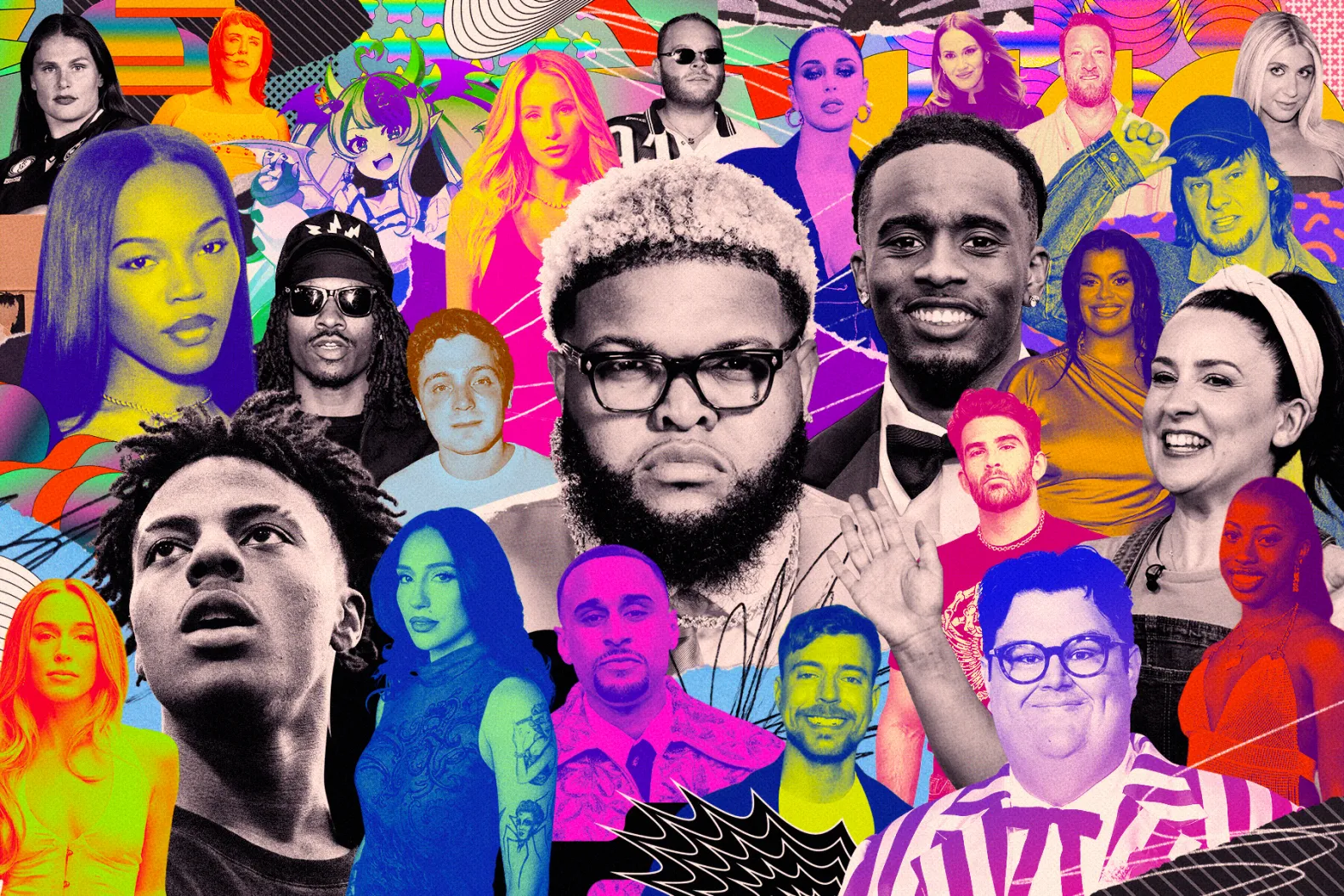$200 Million Deals: The Lawyers Who Turn Influencers Into Business Empires—And Why Your Money Is Next
As of late 2025, the creator economy is experiencing a massive legal and financial maturation, driven by lawyers who are securing $200 million deals and transforming stars like MrBeast and Alix Earle into global business empires. This transition focuses on equity and IP ownership, making creators highly valuable corporate assets and demonstrating why consumer spending is increasingly tied to digital personalities.
The colossal, nearly $500 billion creator economy is undergoing a financial and legal revolution, proving that today's biggest stars are not just entertainers, but multi-million dollar corporate assets. A new report reveals the ultimate power players: the legal fixers who are secretly turning viral clout into massive, resilient fortunes.
The days of social media stars simply posting a sponsored photo for quick cash are officially over. The world’s top creators are no longer just people; they are now complex media companies, and the money behind them is staggering—a financial reality captured by a staggering $200 million offer recently made to license one creator’s existing video library for just five years.
This unprecedented transaction signals a seismic shift. The creator economy, which according to Goldman Sachs is projected to swell from roughly $250 billion today to an astonishing $480 billion by 2027, is being built on intellectual property (IP), long-term contracts, and high-stakes financial deal-making. Behind every massive brand partnership, every new product line, and every streaming show are the elite lawyers transforming viral fame into generational wealth.
Why This Matters in Dollars and Deals
The financial stakes have never been higher, and the shift from "influencer" to "media mogul" is all about diversification and ownership.
- Valuation Shift: The value proposition is moving away from single posts and toward Intellectual Property ownership, product lines, and equity. This secures an income stream far beyond ephemeral brand deals, making these creator-businesses resilient.
- The $480 Billion Horizon: Goldman Sachs’ forecast is driven by massive growth in advertising spend, brand deals, and direct-to-consumer product sales, demonstrating that this isn't a cultural blip—it's a dominant financial engine.
- The Exit Strategy: Top-tier creators are now charting business lifecycles that look like any high-growth startup, with legal teams focused on maximizing value for future acquisitions, IPOs, or major brand partnerships.
Meet the Secret Architects of Creator Wealth
In a new exposé titled “The ‘Influencer’ Peddlers: The Lawyers Who Have Top Creators’ Backs,” The Hollywood Reporter profiles the 23 most prominent attorneys and firms operating at this high-stakes intersection of fame and finance. These are the people structuring the mega-deals that make headlines, and their advice offers a rare peek behind the corporate curtain.
1. The IP and Media Titans
Chris Chatham (Manatt Phelps & Phillips): A known power broker, Chatham represents media giants like Logan Paul (100 million+ combined followers), Alan Chikin Chow (96 million+ YouTube subscribers), and Dhar Mann. His work involves not just protecting their massive reputations, but structuring complex ventures like Paul’s PRIME energy drink and other major media platforms.
- Lesson on Risk Management: Chatham emphasizes the financial danger of reputational fallout, advising that when content goes wrong, creators must "take responsibility, articulate your intent, and engage with the criticism thoughtfully." For businesses built on a personal brand, courage is directly convertible into continued revenue.
Tara Senior & Todd Weinstein (Weinstein Senior): These attorneys recently brokered a historic, high-value deal for MrBeast's highly anticipated Prime Video show, Beast Games. Their experience highlights the industrial scale the industry has reached.
- The Deal that Shocked Hollywood: They revealed a truly mind-boggling offer: “A $200 million offer to license a creator’s existing video library for five years. It’s a sign of how valuable creator-owned IP has become.” This demonstrates that for top talent, established content is now a billion-dollar asset class.
2. The Deal Structurers and Brand Builders
Kevin Yorn & Todd Rubenstein (Yorn Levine): They focus on turning creators into formidable business partners for major corporations, representing clients like Alix Earle (4.6 million+ followers). Their deals include brand partnerships that quickly drive major revenue events.
- Insight on Authenticity: Yorn notes that the key is synergy: "Alix Earle × Nike. She represents effort that feels effortless. It would feel natural, not forced—a real reflection of where culture and confidence meet." This legal-business perspective confirms that for maximum financial return, authenticity is not a soft metric, but a hard asset.
Shaun Gordon & Jessica Marlow (Weintraub Tobin): They are leading the charge for the next generation of audio and lifestyle empires, with Gordon representing podcast host Alex Cooper (founder of Unwell) and Marlow working with the influential sister–podcasters Claudia & Jackie Oshry.
- Essential Financial Safeguard: Gordon advises clients to "Surround yourself with a strong, knowledgeable and experienced team of representatives," underlining that in this new economy, legal counsel is no longer optional but an essential component of a successful, scalable business plan.
The Blurring Line Between Hollywood and the New Elite
As one prominent attorney remarked, "Creators aren’t new Hollywood or old Hollywood—they are completely rewiring the multiverse." This means the sophisticated contract structures, IP rights protection, and revenue mechanisms once reserved for movie studios are now the standard for top-tier social media personalities.
For a consumer audience, the implications are clear: every time a creator launches a new product, a subscription, or a major brand partnership, they are executing a sophisticated business move designed to capture a larger piece of the $480 billion pie. The rise of the "influencer lawyer" is the ultimate proof that today's viral star is actually a fully-formed, financially powerful enterprise.
Legal Influencer Frequently Asked Questions (FAQ)
1. How do lawyers turn a social media influencer into a multi-million-dollar business empire?
Lawyers formalize the influencer's brand by establishing corporate entities (like LLCs or S-Corps), which allows them to structure deals for equity (ownership) instead of just flat fees. This lets the creator capture the long-term value and profits from merchandising, IP licensing, and future product lines, treating them as a major corporation rather than just a personality.
2. What is the biggest financial shift happening in the creator economy today?
The biggest shift is the move from simple advertising revenue and flat-fee sponsorships to Intellectual Property (IP) ownership and equity-based deals. Top-tier creators are securing massive guaranteed payments, like the reported $200 million deals, by selling or licensing their entire content catalogs and brand rights to media conglomerates.
3. What is the greatest legal risk for influencers securing these large-scale deals?
The greatest legal risk is IP transfer and exclusivity. Creators risk giving up control of their name, image, and content rights (in perpetuity) or agreeing to overly restrictive exclusivity clauses that prevent them from working with future, potentially more lucrative partners. Other major risks include FTC disclosure violations and copyright infringement.














